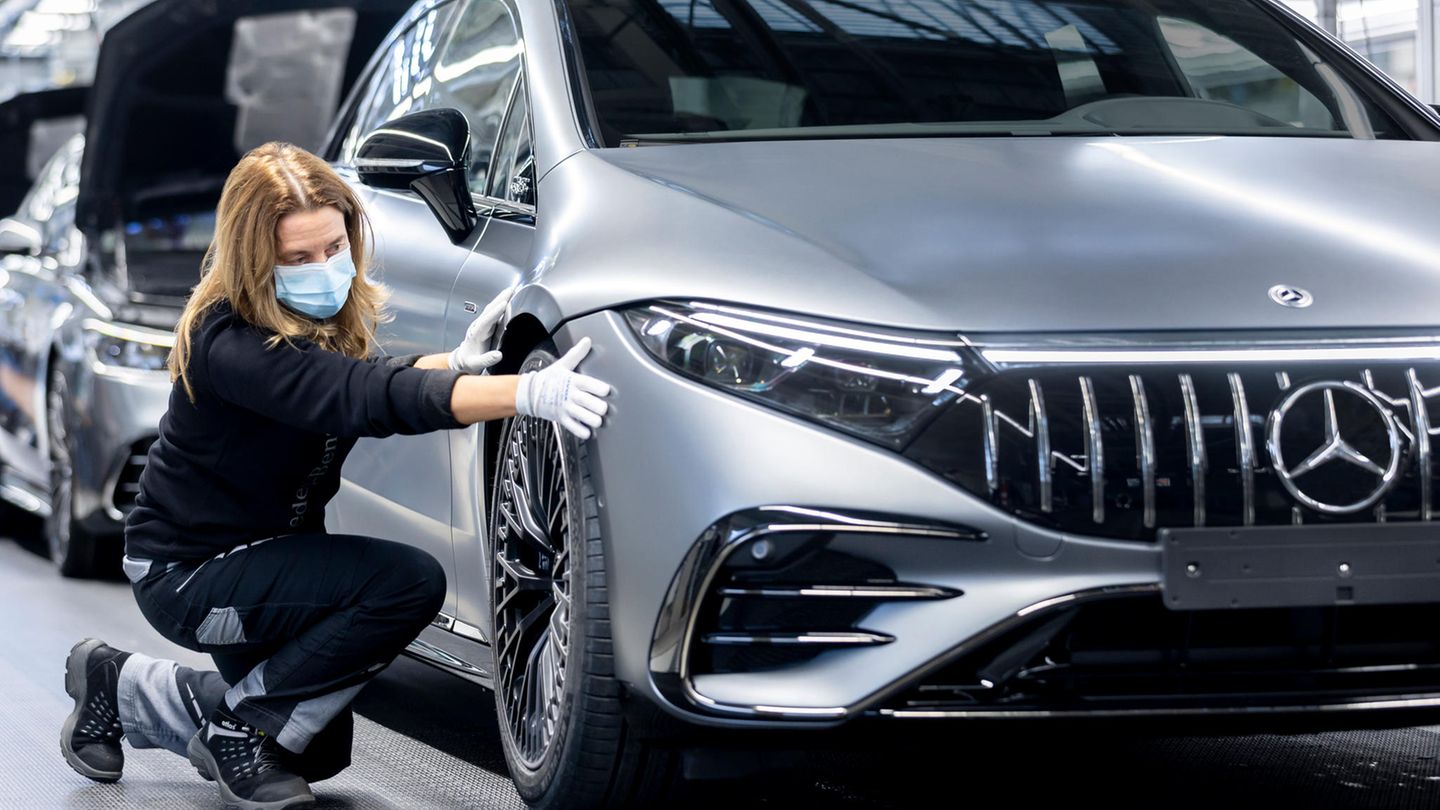Plug-in hybrids are slowly dying out; Electric cars are taking over the market. Like other manufacturers, Mercedes-Benz is paving the way for the future, but there are also concerns about the rapid development.
Mercedes-Benz has significantly expanded the range of plug-in hybrids (PHEV), a combination of combustion engine and electric motor, in recent years. While the electric range of a Mercedes with hybrid drive was 33 kilometers in 2014, it is now over 100 kilometers. With the GLC, Mercedes-Benz’ best-selling car, a hybrid model will appear in September in three versions. Apart from that, the focus of the German carmaker is not on the PHEV.
Because the numbers speak for themselves: in 2021, Mercedes-Benz sold just under 230,000 hybrid vehicles, almost five times the number of all-electric cars sold. In the first quarter of this year, the group only recorded an increase in sales of PHEV of eight percent. For electric cars, this figure was 210 percent. “The tailwind is gone,” quotes the “Handelsblatt” a Mercedes manager.
Mercedes-Benz is therefore already paving the way for the future. The daily newspaper reports that only fully electric variants and petrol engines with 48-volt technology will come onto the market for the next generation of compact cars in 2024.
PHEV without environmental bonus unattractive
This is due to the significantly lower increase in sales of the hybrid models compared to the electric models – but also to the potential imminent end of the premium for plug-in hybrids. Currently, buyers of such a vehicle still receiveup to 6750 euros. Economics Minister Robert Habeck (Greens) wants to stop the subsidy at the end of 2022. According to this, buyers should only receive the state subsidy if the vehicle they have purchased has a proven climate protection effect. The old black-red federal government, on the other hand, decided in 2019 to extend the environmental bonus until the end of 2025.
The German Association of the Automotive Industry (VDA) is concerned about the plans. “The considerations of phasing out funding for plug-in hybrids endanger the ramp-up of electromobility,” warns VDA President Hildegard Müller. As long as the charging infrastructure in Germany is not sufficiently developed, partially electric models are needed to “build trust” in the power transition. “There is no fear of range on long-distance journeys here,” says Müller.
An end to this funding should actually make the PHEV quite unattractive. “They only have a short electric range, consume a lot of fuel due to their high weight and have less storage space than combustion engines due to the battery,” explains Matthias von Alten, car expert at the consulting firm Publicis Sapient. The future of plug-in hybrids is therefore “more than questionable”.
Stefan Bratzel, director of the Center of Automotive Management (CAM) at the Bergisch Gladbach University of Applied Sciences, sees it that way too. He says: “In one to two years we will be approaching a peak situation in the plug-in hybrid business.”
Electric car market is booming
Mercedes-Benz is aiming to generate most of its sales from electric cars by next year at the latest. Audi already sold more electric cars than PHEVs in the first quarter of 2022. In the case of the partially electric models, the production volume even fell by a fifth. At BMW, too, sales have recently declined slightly, which should also have an impact on absolute sales figures in the near future. Electric car sales, on the other hand, recently increased by almost 150 percent.
From the beginning of January to the end of March, more electric cars than PHEVs were sold in the European Union sold. Around 224,000 electric models were sold compared to 199,000 hybrid models. While the former experienced growth of more than 50 percent, sales of plug-in hybrids fell by a good five percent. In the years 2021 and 2020 there was still a balance.
Sources: with material from the dpa
Source: Stern
I am a 24-year-old writer and journalist who has been working in the news industry for the past two years. I write primarily about market news, so if you’re looking for insights into what’s going on in the stock market or economic indicators, you’ve come to the right place. I also dabble in writing articles on lifestyle trends and pop culture news.




